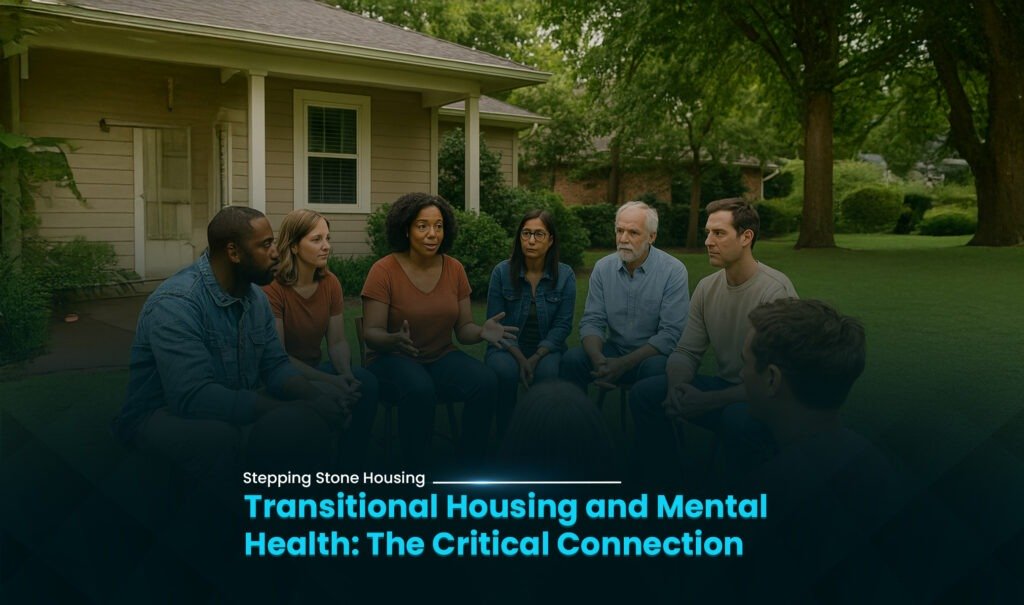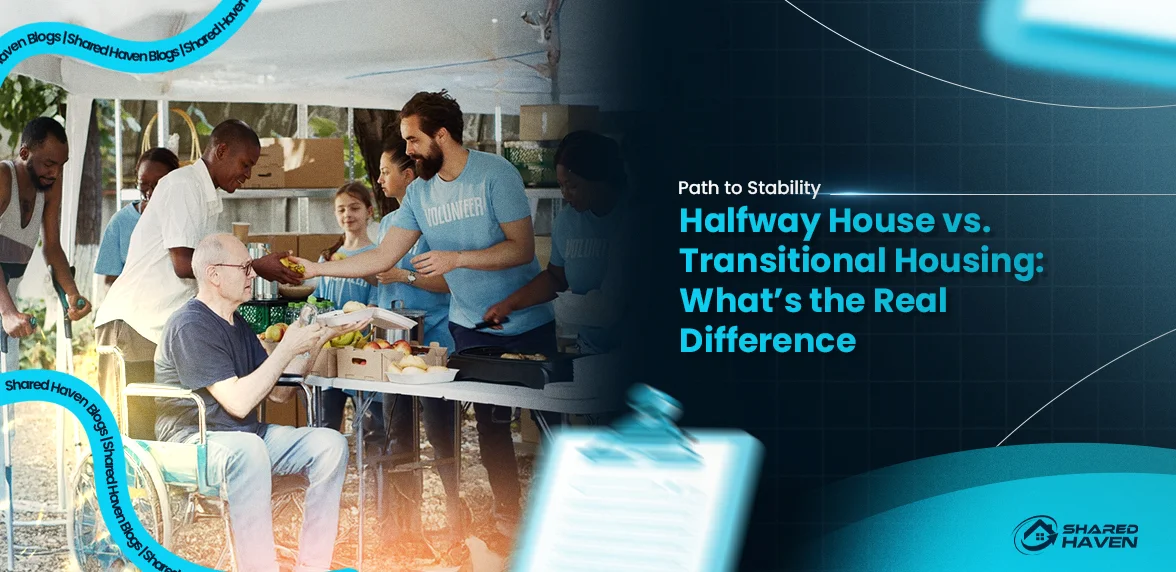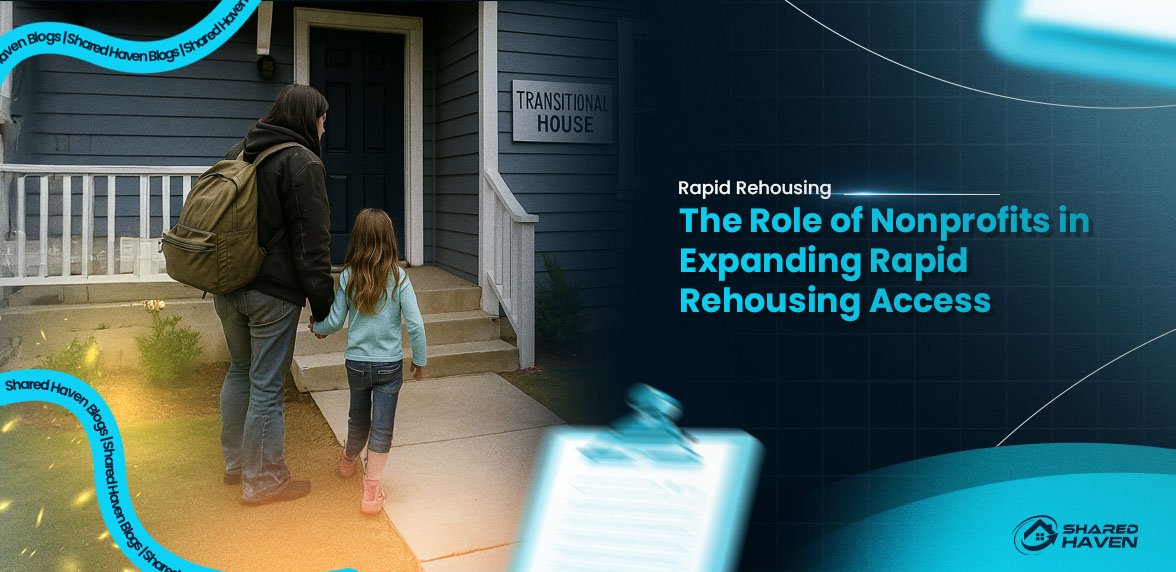Mental Health Support in Transitional Housing Programs
Often, mental health challenges connect closely with homelessness. Additionally, street life makes existing conditions worse. Furthermore, it creates new mental health problems. Clearly, finding stable housing is a crucial step. However, it’s often not enough on its own. Therefore, complete support for mental well-being is vital. Importantly, this is where transitional housing plays a key role. Moreover, it provides more than just shelter. Instead, it offers integrated mental health services. Consequently, this blog explores the critical connection between transitional housing and mental health. Additionally, it highlights how these programs foster healing and stability.
Understanding Transitional Housing
Initially, transitional housing offers a temporary, supportive living environment. Specifically, it bridges the gap between homelessness and stable housing. Essentially, individuals move from crisis towards permanent housing. Notably, these programs differ from emergency shelters in important ways. For instance, they offer longer stays with more services. Furthermore, they integrate a variety of support services for residents. Ultimately, these services aim to empower residents for independent living. Most importantly, a crucial aspect involves mental health care.
The Connection: Homelessness and Mental Illness
Clearly, the link between homelessness and mental illness is well-documented. Often, mental health conditions can lead to homelessness directly. Specifically, they make job retention difficult for many people. Similarly, they make maintaining relationships challenging for individuals. Additionally, they also impair decision-making abilities in daily life. Conversely, homelessness can worsen mental health conditions significantly. Unfortunately, the constant stress of survival takes a severe toll. Moreover, exposure to trauma is common on the streets. Furthermore, lack of sleep and proper nutrition make issues worse. Consequently, this creates a challenging cycle for many people.
How Transitional Housing Addresses Mental Health Needs
Uniquely, transitional housing programs offer a stable base for recovery. Essentially, this stability is vital for mental health recovery. Moreover, they provide an environment that supports healing effectively. Additionally, they integrate specific services for various mental health conditions.
Safe and Stable Environment in Transitional Housing
Fundamentally, mental health recovery requires stability above all else. Fortunately, transitional housing provides this essential foundation for residents. Specifically, it offers a secure place to sleep every night. Additionally, it provides consistent access to food and hygiene facilities. Consequently, this reduces the immediate stressors of homelessness significantly. Finally, residents can feel safe in their environment. Therefore, they can begin to relax and focus on healing. Ultimately, this stability forms the foundation for mental health recovery.
transitional housing programs : Integrated Mental Health Services
Typically, many transitional housing programs offer on-site mental health services. Often, these services are tailored to meet diverse resident needs.
Individual Counseling: Generally, residents can access one-on-one therapy sessions. Specifically, they work with qualified mental health professionals regularly. Together, they address trauma from past experiences effectively. Similarly, they manage symptoms through proven therapeutic methods. Additionally, they develop coping strategies for daily challenges.
Group Therapy: Meanwhile, group sessions provide a supportive community environment. Here, residents share experiences with others facing similar challenges. Furthermore, they learn from peers who understand their struggles. Importantly, they realize they are not alone in recovery. Consequently, this fosters connection and reduces isolation significantly.
Medication Management: Clearly, access to psychiatric care is crucial for recovery. Therefore, programs often connect residents with qualified psychiatrists. Additionally, they ensure proper medication management for all residents. Moreover, they monitor side effects and adjust dosages carefully. Ultimately, this provides consistent psychiatric care throughout their stay.
Crisis Intervention: Sometimes, mental health crises can occur unexpectedly. Fortunately, transitional housing staff receive specialized training for these situations. Specifically, they recognize and respond to crises quickly. Immediately, they provide support and connect residents to emergency services.
Case Management and Mental Health in Transitional Housing
Centrally, case managers provide vital mental health support for residents. Initially, they conduct complete assessments to identify mental health challenges. Subsequently, they develop individualized service plans for each resident.
Additionally, case managers connect residents to appropriate community services. Furthermore, they coordinate care between different service providers effectively. Moreover, they ensure continuity of treatment throughout the program. Similarly, they advocate for residents’ needs with external agencies. Continuously, they also monitor progress closely throughout the process. Ultimately, this personalized guidance is vital for sustained recovery.
The Impact of Mental Health Support in Transitional Housing
Significantly, integrating mental health care has profound effects on residents. Specifically, it helps residents overcome significant barriers to stability. Ultimately, it promotes lasting stability and independence.
Improved Mental Well-being
Consistently, therapy and medication management lead to better outcomes. Typically, residents experience reduced symptoms over time. Furthermore, they report improved mood and emotional stability. Additionally, they feel more in control of their lives. Consequently, this significantly enhances their quality of life overall.
Enhanced Life Skills and Functioning
Notably, addressing mental health improves overall daily functioning significantly. Therefore, residents can better engage in life skills training. Specifically, they learn budgeting and financial management skills. Similarly, they manage their households more effectively than before. Additionally, they develop stronger interpersonal skills with others. Ultimately, this increased capacity prepares them for independent living.
Increased Employment Opportunities
Unfortunately, untreated mental illness creates major barriers to employment. However, transitional housing addresses this challenge directly and effectively. Consequently, improved mental health allows residents to focus on jobs. Furthermore, they participate in training programs more successfully. Additionally, they perform better in interviews with potential employers. Therefore, this leads to higher employment rates overall. Ultimately, it fosters financial independence for residents.
Reduced Risk of Relapse and Re-homelessness
Often, mental health challenges can lead to relapse situations. Similarly, they can also contribute to re-homelessness for individuals. Fortunately, integrated support reduces these risks significantly for residents. Specifically, residents develop healthier coping mechanisms for stress. Additionally, they build strong support networks within the community. Consequently, this significantly increases their chances of long-term stability.
Greater Social Integration
Frequently, mental illness causes social isolation from family and friends. However, transitional housing combats this isolation through community building. For example, group therapy promotes connection between residents. Furthermore, shared living fosters community and mutual support. Additionally, improved mental health allows residents to engage more fully. Therefore, they build positive relationships with others around them. Ultimately, this reduces loneliness and promotes belonging.
Challenges in Providing Mental Health Support
Despite its benefits, providing mental health support faces several hurdles.
Funding Limitations
Typically, mental health services require significant funding for operations. Unfortunately, many transitional housing programs rely on limited grants. Consequently, this restricts the scope of available services. Furthermore, it impacts staff capacity and program effectiveness.
Stigma
Persistently, stigma surrounding mental illness continues to exist. Therefore, some residents may resist seeking help initially. Often, they might fear judgment from others. Consequently, overcoming this internal barrier is challenging for programs. However, programs work to create a supportive environment.
Co-occurring Disorders
Frequently, many residents have co-occurring disorders requiring specialized care. Specifically, they experience both mental illness and substance abuse. Consequently, this complicates treatment approaches and planning significantly. Therefore, integrated care is essential for effective treatment. However, it requires specialized expertise and additional resources.
Staff Training and Resources
Clearly, effective mental health support requires trained staff members. Additionally, continual training is necessary for program effectiveness. Furthermore, access to specialized resources is vital for success. Unfortunately, ensuring adequate staffing levels can be difficult.
The Future of Mental Health and Transitional Housing
Increasingly, the critical connection between transitional housing and mental health gains recognition. Therefore, future efforts will focus on even greater integration.
Trauma-Informed Care
Currently, more programs are adopting trauma-informed approaches to treatment. Specifically, this recognizes the prevalence of trauma among residents. Furthermore, it tailors services to avoid re-traumatization of individuals. Ultimately, it promotes a healing environment for all residents.
Harm Reduction Strategies
For substance abuse, harm reduction is gaining traction nationwide. Specifically, this approach meets individuals where they are currently. Additionally, it reduces negative consequences of drug use. Therefore, it prepares them for recovery more effectively.
Collaborative Care Models
Increasingly, partnerships between transitional housing and community mental health centers grow. Consequently, this ensures seamless transitions between different service providers. Furthermore, it provides complete, ongoing care for residents. Ultimately, it avoids service gaps that could harm recovery.
Conclusion: A Complete Path to Well-being
Undeniably, the link between transitional housing and mental health is strong. Importantly, these programs offer more than just temporary solutions. Instead, they provide a vital space for healing. Furthermore, they integrate essential mental health services effectively. Consequently, this complete approach addresses complex needs of residents. Additionally, it empowers residents to overcome adversity successfully. Moreover, it fosters recovery and promotes lasting stability. Finally, by recognizing and strengthening this critical connection, we help individuals rebuild. Ultimately, we can guide them towards well-being and hope.
National Hotline for Homelessness





